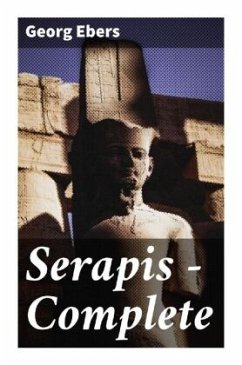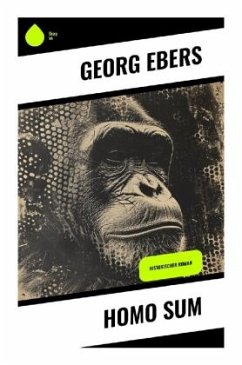
Homo Sum
Versandkostenfrei!
Versandfertig in 6-10 Tagen
9,20 €
inkl. MwSt.

PAYBACK Punkte
0 °P sammeln!
In "Homo Sum," Georg Ebers masterfully intertwines historical narrative with philosophical discourse, crafting a compelling examination of humanity in Ancient Rome. Set against the backdrop of societal upheaval, Ebers employs a vivid literary style, characterized by rich detail and evocative language, drawing readers into the complexities of human nature and moral dilemmas faced by his characters. The novel's exploration of identity, dignity, and the quest for meaning reflects the existential questions prevalent in the 19th-century literary context, mirroring the broader intellectual debates o...
In "Homo Sum," Georg Ebers masterfully intertwines historical narrative with philosophical discourse, crafting a compelling examination of humanity in Ancient Rome. Set against the backdrop of societal upheaval, Ebers employs a vivid literary style, characterized by rich detail and evocative language, drawing readers into the complexities of human nature and moral dilemmas faced by his characters. The novel's exploration of identity, dignity, and the quest for meaning reflects the existential questions prevalent in the 19th-century literary context, mirroring the broader intellectual debates of the time concerning individualism and human rights. Georg Ebers, a prolific German novelist and Egyptologist, had a deep-seated passion for history and archaeology, which profoundly influenced his literary works. His extensive studies in ancient civilizations, coupled with his understanding of societal issues, inform the thematic depth of "Homo Sum." The author's experiences and scholarly pursuits allow him to create a vivid tableau that resonates with contemporary readers, providing insight into the human condition that transcends time. "Homo Sum" is a recommended read for those who seek not only to indulge in a historical narrative but also to engage with philosophical reflections on existence. Ebers's ability to blend storytelling with profound moral inquiry makes this work essential for anyone interested in the intersection of literature, history, and the deeper questions of life.












